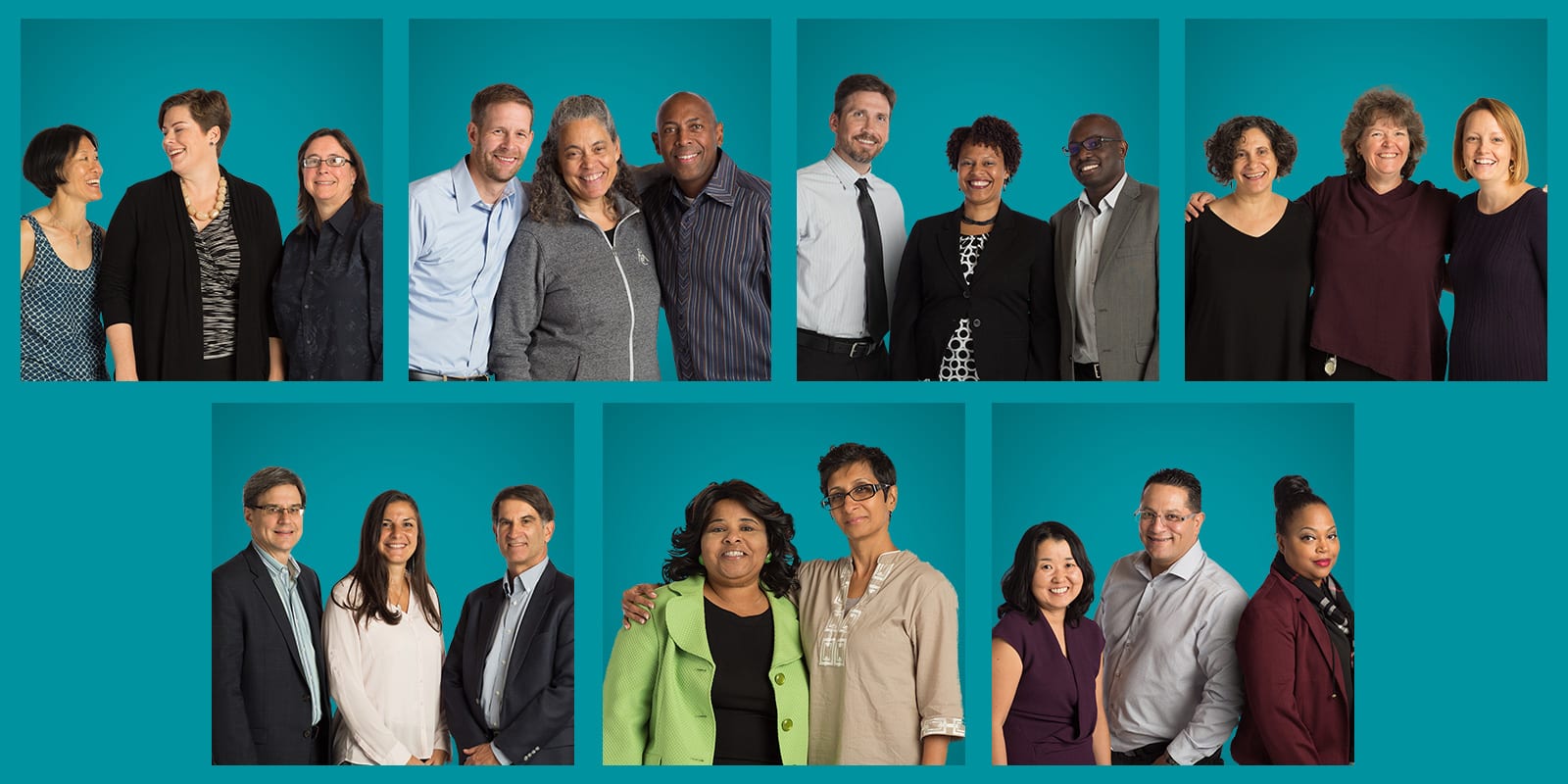Interdisciplinary innovation in housing research

As noted in our first graduation announcement, IRL’s approach is rooted in a commitment to community-engaged, action-oriented research done by cross-disciplinary teams working on one of two annual themes. To spark new insights and advance health and equity, each team combines the local expertise, knowledge, and relationships of one community partner with the subject matter expertise and scientific rigor of two researchers.
The program focuses on two themes each year to forge cohesive cohorts and generate a critical mass of evidence for change. Our first announcement congratulated the teams whose projects focused on early childhood and health. In this post, we celebrate the other half of our first cohort, teams whose projects focused on housing and the key role it plays in people’s health and well-being.
These seven teams designed and executed projects to enhance the well-being of community members by incorporating health principles into the design, building, and maintenance of affordable housing, services, and activities:
In San Francisco, Leslie Dubbin, Susan Neufeld, and Irene Yen examined the health benefits of making renovations to substandard housing.
In Washington, D.C., and Orange, New Jersey, Mindy Fullilove, Derek Hyra, and Dominic Moulden investigated how health disparities can be reduced as communities gentrify.
In Tuscaloosa, Safiya George Dalmida, Billy Kirkpatrick, and George Mugoya evaluated the impact of affordable housing and case management on health outcomes for people living with HIV/AIDS.
In North Carolina, Donna Biederman, Emily Carmody, and Mina Silberberg explored the provision and regulation of services that help people obtain and maintain housing.
In Memphis, Steve Barlow, Joseph Schilling, and Christina Stacy assessed the public health impacts of housing code enforcement interventions.
In Baton Rouge, Revathi Hines, Luvica Lue Russell, and Leslie Taylor-Grover examined the impact of housing and other factors on community health.
In Fresno, Yumiko Aratani, Irán Barrera, and Sabrina Kelley studied effects and perceptions of adverse childhood experiences in low-income housing communities.
The community partners on these visionary teams represent diverse community-based organizations focused on housing, homelessness, health equity, and community well-being. Working with research partners has given them new tools to assess and strengthen their work. “Nonprofits rarely have the time or money to really empirically study what they do,” said Billy Kirkpatrick. “You have anecdotal evidence, you have what feels good, but this allows us to take a research-driven look at what we’re doing and why we’re doing it and helps us to improve.”
The researchers come from a range of institutions and represent diverse disciplines, including economics, nursing, psychology, political science, public health, policy research, urban sustainability, mental health care, public administration, and community and family medicine. Working with community partners, they have been able to conduct projects driven by communities’ needs and apply their research to action and organizing for change. “Letting the community lead the project—and accepting that we don’t know the answers or even the questions in advance—has been uncomfortable but so beneficial,” said Christina Stacy. “It’s really changed the way I think about all of my research.”
Does this sound like the kind of work you want to do?
Applications for our next cohort will open in January 2020. Please consider applying, and share this post with other community leaders and researchers who might want to. Creating real change requires leaders from every perspective, field, sector, and geography, and we are committed to building the most diverse network of leaders possible.
